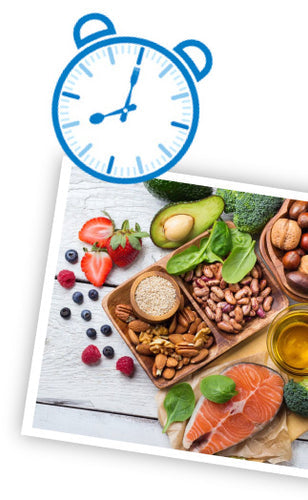
You’re a parent who takes pride in buying the right foods, preparing them nutritiously and serving them creatively to your children. Did you know the food habits of your child are greatly influenced by parents, caregivers and family members?
HOW PARENTS CAN CREATE HEALTHY EATING HABITS:
Feed nutritious foods and keep portions small. Allow second portions if desired. Children are intimidated by large amounts of food.
Set regular meal and snack times at approximately every 2-3 hours apart.
Serve food that looks appealing creatively. Leave eating to the kids. Respect your children's ability to determine how much food to eat.
It's important to make mealtimes pleasant and reduce distractions. No tv, phones or toys. Your child needs to be calm, well rested, and hungry to eat well. Always offer food in a calm, neutral way and don't pressure your toddler to eat. Do not force your child to eat but cajole them with stories. Forced feeding may decrease their appetite by making mealtime a punishment for your child.
Toddlers Start To Eat Like Adults
Children learn from adults. Your child is more likely to eat her carrots if you do too!
Get children involved in planning menus, shopping or cooking. Get them kitchen friendly.
Do not use food as reward or punishment. Use verbal praise as rewards instead of food.
Make mealtimes fun - try different shapes, colours, flavours, textures and finger foods.
Allow children to take their time, but set a reasonable time limit.
Encourage Independent Eating in your toddler
Encourage independence. Allow children to scoop, serve and feed themselves as much as they can. Toddlers need to practice new skills, like using utensils. This is messy at first but when they succeed, they'll feel good about themselves.
Family Mealtime
Family mealtimes are important. Children who eat meals regularly bond with their family and have healthier eating habits.
Getting toddlers to stay active create a healthy appetite and maintain a healthy weight.

Is your toddler a picky eater? Support his nutritional needs in his growing up journey by supplementing his meals with Enfagrow A+.
Enfagrow A+ is formulated to help meet the recommendation for daily DHA intake+. It contains DHA, which is an important building block for brain and eye development^. It also contains dietary fibre (Polydextrose), and prebiotics (GOS) that promote growth of good Bifidus bacteria to help maintain a healthy digestive system.

References:






